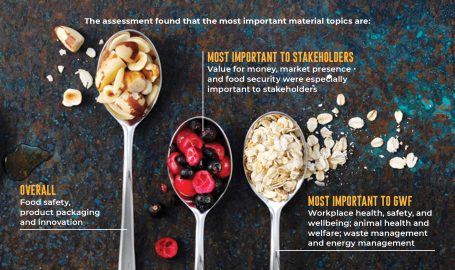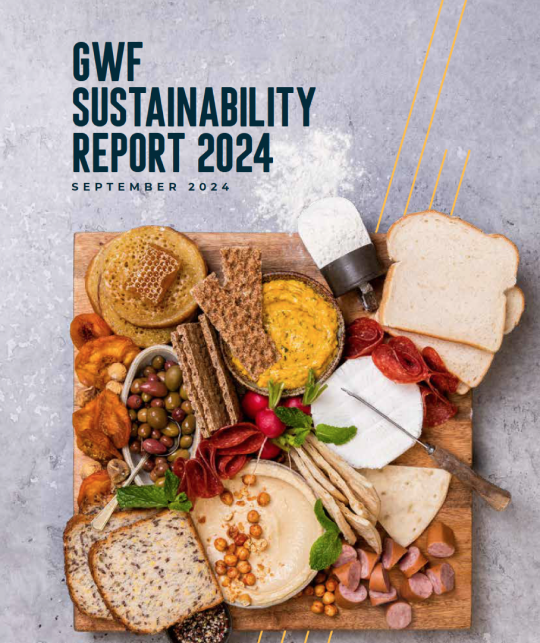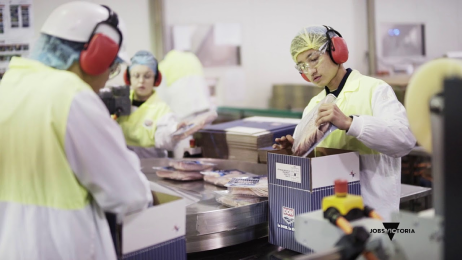Our Social Responsibility


Some of our key achievements in summary
Our guiding principles
Care for our people
Prioritising the health, safety and wellbeing of our team, and cultivating inclusive and diverse workplaces where everyone is respected, supported and empowered to fulfil their potential.
Create and sustain value
For customers, consumers, and our own business through our high quality, healthy, nutritious, and affordable products, and through the relationships we forge with our supply chain.
Be a good neighbour and corporate citizen
That means looking out for the communities and environments impacted by our business, acting with integrity and working to reduce our negative impacts every day.
Our Sustainability pillars


A message from our CEO, Paul Foster
At GWF, our vision is to provide the best home for a growing family of safe, well-led businesses, delivering outstanding results and return for the long-term.
GWF is proud of our ongoing work in Sustainability and the progress we are making. However, we know there is more we can and must do to tackle ongoing issues including climate change, cost of living pressures, food waste, and recycling.”
Products
We’re committed to delivering value for customers, ensuring products are safe, consistent in quality and support good health.
144 tonnes
of sugar removed from the food supply as a result of Tip Top Bakeries reducing sugar and artificial additives in their products
87%
of Tip Top products have a Health Star Rating of 3.5, and we’ve committed to continue improving the nutrition of these products
<1%
of food produced by Tip Top Bakeries is sent to landfill
Case study
Post-industrial recycled plastic in bread bags
Ploughmans Bakery (a GWF business) in New Zealand was the first and only bakery brand to introduce recycled plastic into its bread bags from May 2022. By using Post Industrial Recycled Plastic, Ploughmans Bakery has reduced its use of virgin plastic by 30%.
People
Workplace health and safety is a consistent area of focus for us. This means prioritising employee wellbeing,
including mental health.
35%
of the top 130 positions are held by women (2022 Workplace Gender Equality Agency data)
>900
employees have completed health assessments and strengthening programs with on-site physio support
2 million
loaves of bread donated to Foodbank in Australia and KidsCan in New Zealand
Case study
Improved parent and carer benefits
We offer one paid day a week off for 12 weeks to help new parents manage the process of coming back to work. We also fund a ‘first aid for families’ course for new parents. The result? A post-parental leave retention rate of 92%.
Planet
As well as its environmental impact, we’re also aware of the material risk climate change poses to our
businesses and their supply chains, and are working hard to secure a healthy environment.
35.6%
decrease in reportable greenhouse gas emissions since 2008/09
17.6%
decrease in reportable energy consumption since 2008/09

6
completed roof-top solar energy projects
Case study
Tip Top moving to renewable energy sources
We have completed our sixth roof-top solar energy project at our largest Tip Top Bakery in Australia, helping us get closer to our emissions reductions target. Tip Top aims to have 10% of its total electricity requirements be solar powered by 2025 and is working to purchase its remaining energy from renewable sources.
Safety

Reports and statements
Click to download our latest reports and statements, which outline progress we’ve already made as well as our commitments for the future.
Want to know more about our sustainability efforts?
Get in touch with us at sustainability@gwf.com.au

